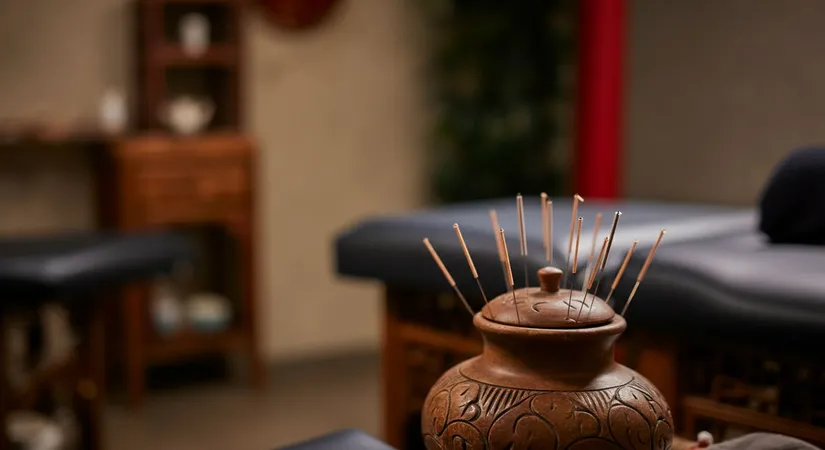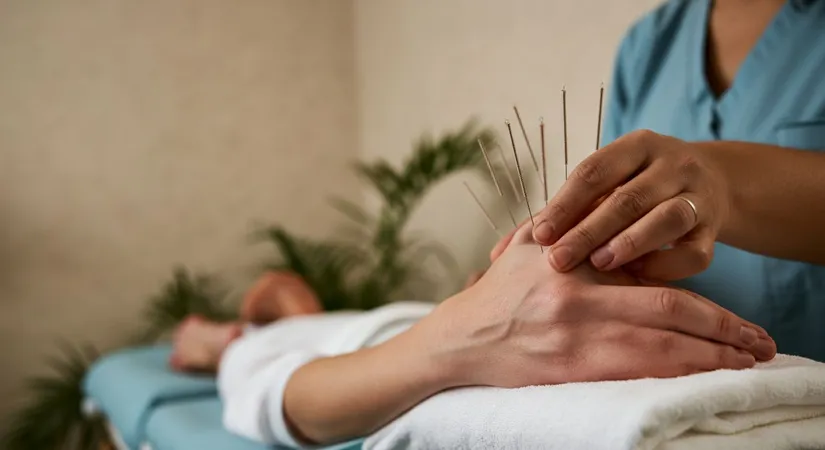Acupuncturist Near Me: Discover Top Local Clinics for Holistic Healing
Find the best acupuncturist near you for holistic healing and effective pain relief. Learn what to expect from acupuncture sessions and the benefits of traditional Chinese medicine.
Are you seeking relief from chronic pain or looking for a holistic approach to wellness? Discovering a top-notch acupuncturist near you can be a transformative step towards better health. This ancient Chinese practice, renowned for its therapeutic benefits, is becoming increasingly popular among people seeking alternative medicine options. In this guide, we'll explore how to find the best acupuncturist for pain relief, what affordable services you might expect nearby, and delve into the myriad benefits of traditional Chinese medicine.
Evaluating Acupuncturist Expertise for Effective Pain Management
Understanding Acupuncturist Credentials and Certifications
When searching for an acupuncturist near you, it's crucial to verify their credentials. In the United States, acupuncturists must be licensed, which typically requires passing the National Certification Commission for Acupuncture and Oriental Medicine (NCCAOM) exam. This ensures they have met rigorous educational and professional standards. For example, a licensed acupuncturist will have completed extensive training in traditional Chinese medicine, including anatomy, physiology, and needle technique.Key Factors in Choosing an Acupuncturist
- Specialization in specific ailments, such as chronic back pain or migraines, can enhance treatment effectiveness.
- Experience in holistic health treatments, integrating acupuncture with other therapies, offers comprehensive care.
- Proximity to a local acupuncture clinic can improve accessibility and consistency in treatment sessions.
Assessing Treatment Approaches and Patient Outcomes
Different acupuncturists may employ various techniques, from traditional needle insertion to modern electro-acupuncture. Understanding these methods can help you choose a practitioner whose approach aligns with your health goals. For instance, some acupuncturists specialize in using acupuncture for stress relief, which can be beneficial if you're dealing with anxiety-related pain.Steps to Evaluate an Acupuncturist's Effectiveness
- Research patient reviews to gauge satisfaction and treatment success rates.
- Consult with the acupuncturist about their experience with your specific condition.
- Schedule an initial consultation to discuss treatment plans and expected outcomes.

Exploring the Benefits of Acupuncture for Holistic Health
Understanding Acupuncture's Role in Traditional Chinese Medicine
Acupuncture is a cornerstone of traditional Chinese medicine, focusing on restoring balance within the body. This ancient practice involves inserting fine needles into specific points to stimulate energy flow, known as "Qi." For instance, targeting points along the meridians can enhance organ function and promote overall well-being.Key Benefits of Acupuncture for Holistic Health
- Improves mental clarity and reduces stress by balancing the body's energy.
- Enhances immune function, potentially reducing the frequency of illnesses.
- Supports digestive health, alleviating issues like bloating and indigestion.
Integrating Acupuncture with Other Holistic Treatments
Combining acupuncture with other holistic health treatments can amplify its benefits. For example, pairing acupuncture with herbal medicine can address both symptoms and root causes of ailments. Additionally, incorporating practices like meditation or yoga can further enhance the therapeutic effects, promoting a comprehensive approach to health.Steps to Incorporate Acupuncture into Your Wellness Routine
- Consult with a licensed acupuncturist to tailor treatments to your specific needs.
- Schedule regular sessions to maintain balance and prevent health issues.
- Combine acupuncture with lifestyle changes, such as diet and exercise, for optimal results.

Unveiling the Science Behind Acupuncture's Efficacy
Mechanisms of Action in Acupuncture
Acupuncture's effectiveness is rooted in its ability to stimulate the nervous system. By inserting needles at specific points, it triggers the release of neurotransmitters and endorphins, which can alleviate pain and promote healing. For example, studies have shown that acupuncture can increase serotonin levels, enhancing mood and reducing anxiety.Scientific Benefits of Acupuncture
- Reduces inflammation by modulating immune responses, as evidenced in arthritis patients.
- Improves blood circulation, aiding in faster recovery from injuries.
- Enhances sleep quality by regulating melatonin production, beneficial for insomnia sufferers.
Comparative Studies on Acupuncture's Effectiveness
Research comparing acupuncture to conventional treatments reveals significant findings. A study involving chronic pain patients found that 70% experienced greater relief with acupuncture than with standard pain medications. This highlights acupuncture's potential as a viable alternative for those seeking holistic health treatments.Steps in Conducting Acupuncture Research
- Identify the specific health condition to be studied, such as migraines or back pain.
- Recruit participants and divide them into control and treatment groups.
- Analyze outcomes using statistical methods to determine acupuncture's efficacy.
Decoding the Pathways: How Acupuncture Influences Body Systems
The Role of Qi in Acupuncture
Acupuncture is rooted in the concept of qi, the vital energy flowing through the body. This energy travels along pathways known as meridians. By inserting needles at specific points, acupuncture aims to unblock these pathways, ensuring a balanced flow of qi. For instance, targeting the lung meridian can enhance respiratory health, while the stomach meridian may aid digestion.Key Pathways and Their Health Impacts
- The heart meridian influences emotional well-being, potentially reducing anxiety and stress.
- The liver meridian supports detoxification processes, promoting liver health and vitality.
- The kidney meridian is crucial for reproductive health, impacting fertility and hormonal balance.
Acupuncture's Interaction with the Nervous System
Acupuncture's effects extend beyond qi, significantly impacting the nervous system. Needle insertion stimulates nerve endings, prompting the release of neurotransmitters. This process can enhance mood and alleviate pain. For example, increased endorphin production can lead to a natural pain-relief response, while serotonin release may improve mood and sleep quality.Steps in the Acupuncture Process
- Initial consultation to assess health concerns and determine treatment points.
- Precise needle insertion at selected meridian points to stimulate qi flow.
- Monitoring and adjusting treatment based on patient response and progress.
Innovative Acupuncture Techniques for Holistic Health
Comprehensive Acupuncture Treatment Processes
Frequently Asked Questions
What should I look for when choosing an acupuncturist near me?
How does acupuncture work to relieve pain?
What are the benefits of integrating acupuncture with other holistic health treatments?
Are there affordable acupuncture services nearby, and what should I expect?
Is acupuncture safe, and what are the risks involved?
Discover the Path to 'Healthy Beauty' with estethica's Expert Care. Call Now for Your Free Consultation!
📞 Speak with Our Specialists Today!